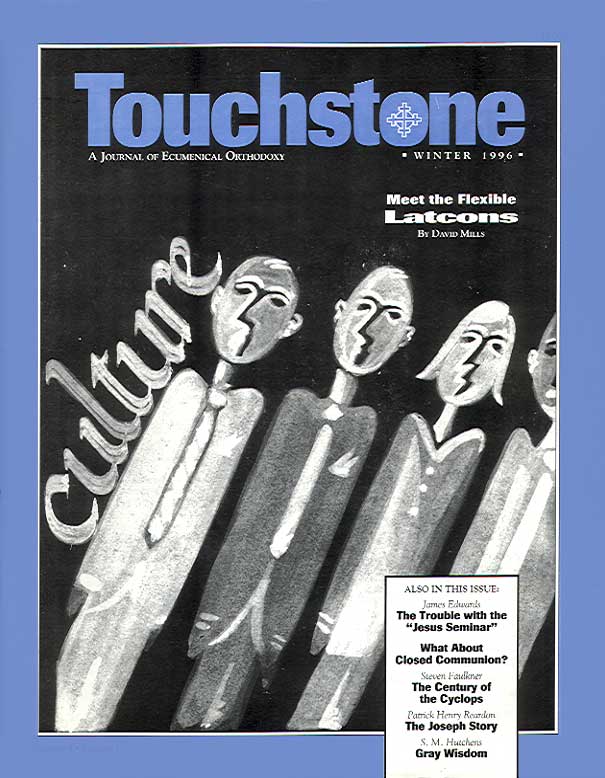John Calvin
(1509–1564)
John Calvin, the Genevan Reformer, was the founder and greatest systematizer of the Reformed tradition in Protestantism. Calvin was born at Noyon in Picardy, France. A quiet and sensitive young man, Calvin experienced a sudden conversion in his early twenties, and published the first edition of his Institutes of the Christian Religion three years later while living in exile in Basel, Switzerland. Calvin was strongly influenced by Lutheranism, but differed from Luther in some areas, such as church organization and the Sacraments. His interpretation of the biblical teachings on predestination is the one feature of Calvinism that is most often debated. Calvin also emphasized obedience to the moral teachings of the Scriptures as a necessary feature of the Christian life. “Doctrine is not an affair of the tongue, but of the life,” he wrote. The excerpt below is from his Institutes, from the section “On the Christian Life.”
Moreover, we see by these words that self-denial has respect partly to men and partly (more especially) to God. For when Scripture enjoins us, in regard to our fellow men, to prefer them in honor to ourselves, and sincerely labor to promote their advantages (Rom. 12:10; Phil. 2:3) he gives us commands which our mind is utterly incapable of obeying until its natural feelings are suppressed. For so blindly do we all rush in the direction of self-love, that every one thinks he has a good reason for exalting himself and despising all others in comparison. If God has bestowed on us something not to be repented of, trusting to it, we immediately become elated, and not only swell, but almost burst with pride. The vices with which we abound we both carefully conceal from others, and flatteringly represent to ourselves as minute and trivial, nay, sometimes hug them as virtues. When the same qualities which we admire in ourselves are seen in others, even though they should be superior, we, in order that we may not be forced to yield to them, maliciously lower and carp at them; in like manner, in the case of vices, not contented with severe and keen animadversion, we studiously exaggerate them. Hence the insolence with which each, as if exempted from the common lot, seeks to exalt himself above his neighbor, confidently and proudly despising others, or at least looking down upon them as his inferiors. The poor man yields to the rich, the plebeian to the noble, the servant to the master, the unlearned to the learned, and yet every one inwardly cherishes some idea of his own superiority. Thus each flattering himself, sets up a kind of kingdom in his breast; the arrogant, to satisfy themselves, pass censure on the minds and manners of other men, and when contention arises, the full venom is displayed. Many bear about with them some measure of mildness so long as all things go smoothly and lovingly with them, but how few are there who, when stung and irritated, preserve the same tenor of moderation? For this there is no other remedy than to pluck up by the roots those most noxious pests, self-love and love of victory (filoneicia cai filantia). This the doctrine of Scripture does. For it teaches us to remember, that the endowments which God has bestowed upon us are not our own, but His free gifts, and that those who plume themselves upon them betray their ingratitude. “Who maketh thee to differ,” saith Paul, “and what hast thou that thou didst not receive? Now if thou didst receive it, why dost thou glory, as if thou hadst not received it?” (1 Cor. 4:7) Then by a diligent examination of our faults let us keep ourselves humble. Thus while nothing will remain to swell our pride, there will be much to subdue it. Again, we are enjoined, whenever we behold the gifts of God in others, so to reverence and respect the gifts, as also to honor those in whom they reside. God having been pleased to bestow honor upon them, it would ill become us to deprive them of it. Then we are told to overlook their faults, not, indeed, to encourage by flattering them, but not because of them to insult those whom we ought to regard with honor and good will. In this way, with regard to all with whom we have intercourse, our behavior will be not only moderate and modest, but courteous and friendly. The only way by which you can ever attain to true meekness, is to have your heart imbued with a humble opinion of yourself and respect for others.
subscription options
Order
Print/Online Subscription

Get six issues (one year) of Touchstone PLUS full online access including pdf downloads for only $39.95. That's only $3.34 per month!
Order
Online Only
Subscription

Get a one-year full-access subscription to the Touchstone online archives for only $19.95. That's only $1.66 per month!
bulk subscriptions
Order Touchstone subscriptions in bulk and save $10 per sub! Each subscription includes 6 issues of Touchstone plus full online access to touchstonemag.com—including archives, videos, and pdf downloads of recent issues for only $29.95 each! Great for churches or study groups.
Transactions will be processed on a secure server.
more from the online archives
calling all readers
Please Donate
"There are magazines worth reading but few worth saving . . . Touchstone is just such a magazine."
—Alice von Hildebrand
"Here we do not concede one square millimeter of territory to falsehood, folly, contemporary sentimentality, or fashion. We speak the truth, and let God be our judge. . . . Touchstone is the one committedly Christian conservative journal."
—Anthony Esolen, Touchstone senior editor









